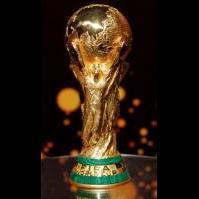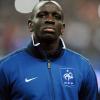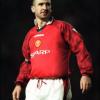pmsl @ creatine being associated with doping.
Official Drugs Cheat & Match Fixing Topic
- 1 month later...
Soooooo there was me thinking the blood bags had been destroyed all those years ago....
Operation Puerto is back on (maybe!) a decision on the appeal is expected this month
I wonder how far they'll go (e.g. break from Cycling and include Football/Athletic/Tennis) or just fold and throw the case out
- 2 months later...
Guy who broke the russian doping story
Any rumours yet?
Bbc journo @robertrea saying he hasnt seen anything that convincing yet and involves atleast 4 clubs
Leicester players?
-
 1
1
1 minute ago, Taurus said:Leicester players?
petr cech level reach right here LOLOLOL
no wonder the BBC want nothing to do with it
So the dr is saying hes treated these players with no evidence and no independant verification lol. Guy is on miss practice charge aswell lol, needed that lawyer p.
Supposedly Involved Chelsea, Arsenal, Leicester & Birmingham
Quote
A British doctor has been secretly filmed describing how he prescribed banned performance- enhancing drugs to 150 elite sportsmen, including Premier League footballers.
An investigation by The Sunday Times has found that Dr Mark Bonar charges sports stars thousands of pounds for illicit drug programmes.
Yesterday, the culture secretary, John Whittingdale, ordered an inquiry into the taxpayer-funded UK Anti-Doping (Ukad) watchdog, which was given evidence about the doctor’s doping activities two years ago, but failed to take any action to stop him.
Bonar, 38, who is based at a private London clinic, made a series of extraordinary disclosures in meetings with undercover reporters which lay bare for the first time the depth of the drugs cheating culture within British sport. He claimed:
• His network of secret “clients” included an England cricketer, British Tour de France cyclists, a British boxing champion, tennis players and martial arts competitors as well as football players
• Bonar claims he has treated Arsenal, Chelsea, Leicester City and Birmingham City players. Despite Bonar’s claims, The Sunday Times has no independent evidence Bonar treated the players. There is no evidence the clubs were aware of Bonar’s relationship with any players or drug use by them
• In the past six years he has treated more than 150 sports people from the UK and abroad variously with banned substances such as erythropoietin (EPO), steroids and human growth hormone, and the sports performance improvements were “phenomenal”
• He was introduced to several sportsmen by a former Chelsea fitness coach who himself said he had suggested to a Premier League player that he should contact the doctor about steroid treatment
• He had given performance- enhancing drugs to two professional dancers from BBC television’s Strictly Come Dancing.
Bonar’s description of his illicit work will shock British sports fans. It comes in the wake of this newspaper’s doping scandal exposé last summer, which revealed widespread cheating at top international athletics events.
His admissions also raise serious questions about the competence of Ukad, which has been chosen to investigate the recent doping allegations in Russian sport and will oversee the worldwide effort to stamp out the use of banned drugs ahead of the Olympic Games in Rio de Janeiro this summer.
Ukad, which receives £6m of taxpayers’ money to police British sport, was given documentary evidence of the doctor’s doping activities two years ago, but dismissed the allegations after a perfunctory investigation.
Whittingdale said he was “shocked and deeply concerned” by the revelations about Bonar and demanded to know why Ukad did not act sooner. “I have asked for an urgent independent investigation into what action was taken when these allegations were first received and what more needs to be done to ensure that British sport remains clean,” he said.
“There is no room for complacency in the fight against doping and the government is already looking at whether existing legislation in this area goes far enough. If it becomes clear that stronger criminal sanctions are needed, then we will not hesitate to act.”
After viewing the undercover footage of the meetings with Bonar, Toni Minichiello, coach to the Olympic gold medallist Jessica Ennis-Hill, said: “This case shows that British sport has a bigger doping problem than any of us imagined.”
He called on Nicole Sapstead, Ukad’s chief executive, to resign. “Her clear error of judgment in failing to ensure Ukad properly investigated Bonar makes her position untenable because she has failed in her fundamental duty to protect clean athletes.”
Lord Moynihan, the former sports minister, called for Ukad to be suspended from its duties and said Sapstead’s position appeared to be “untenable”. Emails confirm Sapstead was aware of the case at the time.
Bonar is an anti-ageing doctor who treats private patients at the Omniya clinic in Knightsbridge, London. He claims to take a cut on the medications he prescribes. Omniya said last week that it did not know that Bonar was treating sports stars.
The Sunday Times was first tipped off about Bonar’s doping activities by a sportsman who had approached Ukad with evidence about the doctor after he himself had been suspended for breaching anti-doping rules.
In the hope of securing a reduction of his suspension, the sportsman handed investigators documents proving that Bonar had prescribed him the banned substances.
However, Ukad later dismissed the athlete’s evidence as being of “little or no value” and said there were “no grounds for action to be taken against Dr Bonar”. Ukad considered it had no jurisdiction over Bonar but it did not contact or pass on the evidence to the General Medical Council (GMC) which has clear rules stating that doctors should not prescribe drugs to enhance sporting performance.
To test the sportsman’s evidence, this newspaper sent an aspiring Olympic runner to Bonar’s clinic. His appointments were recorded using a hidden camera.
In the first meeting, Bonar told the athlete: “Some of these treatments I use are banned on a professional circuit. So, you have to be mindful of that. Having said that — I have worked with lots of professional athletes who do use these treatments.”
He prescribed prohibited drugs to the runner and suggested his performance would improve with a course of EPO which he was happy to supply.
The doctor went on to talk about the other sportsmen he claimed he had treated in a series of meetings with undercover reporters. He said drugs were now a part of sport and claimed he had “never met a clean athlete”.
It is the first time that Premier League players have been dragged into the doping scandal. Bonar claimed he had worked with “a few footballers” who have been or are currently members of the playing staff of the Premier League clubs Arsenal, Chelsea and Leicester City, and the Championship side Birmingham City.
Bonar said athletes knew about his services through word of mouth. “I don’t really advertise . . . I don’t want that media scrutiny that kind of [thing], you know, coming down on you.”
Although he named athletes from several different sports, this newspaper has decided not to publicise them until Bonar’s claims have been further investigated. Those contacted by The Sunday Times either denied being treated by him or declined to comment.
As part of the service Bonar was offering to the undercover reporters, he introduced them to Rob Brinded, a former fitness coach at Chelsea football club. Bonar said the pair had “collaborated on a lot of clients”. He added: “We are a great team.”
Brinded revealed to the reporters that he had been told that a number of Chelsea players were taking banned sports drugs during his time at the club between 2001 and 2007. Yesterday his lawyer claimed that there must have been a “misunderstanding” and he denied saying that any Chelsea players were ever taking banned drugs.
He said he had recently suggested a first team player from a Premier League club contact Bonar in order to undergo a course of steroid treatment. “I know he’s [Bonar] worked with a lot of footballers,” Brinded said.
Brinded said he would not take part in the doping himself and that would all be dealt with by Bonar. There is no evidence that the players Bonar claims to have treated were referred to him by Brinded, who denies referring any sports clients to Bonar.
The General Medical Council’s rules state that doctors: “Must not prescribe or collude in the provision of medicines or treatment with the intention of improperly enhancing an individual’s performance in sport.”
Niall d*ckson, chief executive of the GMC, said: ‘I would like to thank The Sunday Times for bringing these issues to our attention. These are serious allegations and we will follow them up as a matter of urgency.”
Last week Bonar denied doping sports stars to enhance their performance and said he had not breached GMC rules. “The fact that some of my patients happen to be professional athletes is irrelevant. If they have proven deficiencies on blood work and are symptomatic, I will treat them.
“They are well fully aware of the risks of using these medicines in professional sport and it is their responsibility to comply with anti-doping regulations.”
David Kenworthy, the chairman of Ukad, issued a statement saying: “An independent review will be conducted into the issues raised by The Sunday Times.
“They will also be asked to make any recommendations to improve the way in which intelligence is dealt with in the future so that Ukad can be as effective as possible in keeping sport clean.”
- 2 weeks later...
QuoteAthletes caught using meldonium could avoid a ban after anti-doping chiefs said it was not clear how long it takes the drug to leave the body.
Wada announced in September that it was adding the heart disease medicine to its banned list from 1 January.
Since the start of the year, there have been 172 positive tests.
But numerous athletes have claimed they stopped taking the drug last year, prompting many to question how long the drug can stay in an athlete's system.
"There is currently a lack of clear scientific information on excretion times," the World Anti-Doping Agency (Wada) said in new guidance distributed on Monday.
It said that athletes might be able to show that they "could not have known or suspected" meldonium would still be in their systems having taken it before it was banned.
"In these circumstances, Wada considers that there may be grounds for no fault or negligence on the part of the athlete," added the guidance.
On Wednesday, Wada issued a statement saying the new guidance was "not an amnesty" for athletes and they must still explain to anti-doping authorities how the substance was in their body.
This apparent climbdown has already been celebrated by media outlets in Russia, which has borne the brunt of the scandal so far.
http://www.bbc.co.uk/sport/36034369
well well well

-
 2
2
- 4 months later...
Black excellence
-
 1
1
-
Recently Browsing 0 members
- No registered users viewing this page.
-
Latest Activity
-
- 2 replies
- 19339 views
-
- 7 replies
- 20872 views
-
- 59 replies
- 121163 views
-
New single & video - Tru Trilla "End the Day" ft Ruste Juxx & Julius Luciano of Shoe Gang
By urbanelite, in Music
- tru trilla
- ruste juxx
- (and 18 more)
- 0 replies
- 9856 views
-
- 0 replies
- 3201 views
-











Recommended Posts
Dinho was on sniff
Link to comment
Share on other sites
Guest babatundestacks
Majority of footballers are on something.
I swear These man are running like 2 marathons a week.
Not even including ball work,gym work etc
Link to comment
Share on other sites
RYDER.
3hunna on roids
Link to comment
Share on other sites
Posted